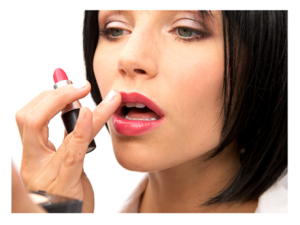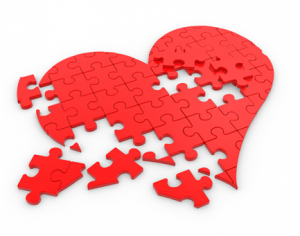The headline caught my eye despite my better judgment: “The One Surprising Reason You’re So Addicted to Online Dating.”
 Okay, I thought, I’ll bite. Let’s just see if any of this is surprising and what, precisely, this writer determines that we ought to do about it. You know, the problem of the online dating merry-go-round. For that matter, the relationship merry-go-round, the grass-is-always-greener syndrome, and our increasingly quick fix mentality when it comes to many aspects of living our lives in 21st century America.
Okay, I thought, I’ll bite. Let’s just see if any of this is surprising and what, precisely, this writer determines that we ought to do about it. You know, the problem of the online dating merry-go-round. For that matter, the relationship merry-go-round, the grass-is-always-greener syndrome, and our increasingly quick fix mentality when it comes to many aspects of living our lives in 21st century America.
What got my attention in short order were the following words, which strike me as spot on:
It seems that these days, we’re all about consuming more… and giving less.
Smart, I tell myself, though this is a symptom of a wicked web of social and economic factors, not easily understood and even more difficult to address in isolation. We are, after all, consuming everything more hungrily, more quickly, more desperately and with less discrimination – our experiences, our responsibilities, our purchased merchandise and services. But we aren’t doing so in a vacuum; we are, ourselves, staving off the feeling of being consumed, and quite possibly, the reality.
“Consuming” Love Rather than Living it
As for the consumption of love (or its facsimile), especially in the online dating world, I would be hard-pressed to say that millions aren’t doing exactly that. We’re trying each other on for size, we’re judging quickly (and superficially), we’re moving on to the Next Great Possibility and they’re doing the same. So why would we give more than a little, as we aren’t making an investment in the process – or at least, not until we’ve made it through three dates or three weeks or possibly three months?
Just how much of ourselves ought we to give in partnership anyway? These are tricky topics to tackle – in dating, living together, or marriage. They are unlikely to be explored in neatly packaged fashion on a glossy relationship site.
However, as I continued to read all the same, while I wouldn’t say I was surprised by the writer’s conclusions as to why we are drawn to online dating, I find statements offered with a great deal of truth and clarity.
In looking more deeply at why we’re “addicted” to online dating, author and relationship guru Justin Kelly McClure offers this:
… because there are hundreds or thousands of people who have the potential to love us, each one at our fingertips. They exist on the other side of our computer, so close, yet so far away. Virtually representing a face, but viscerally representing hope.
Ah, yes. Hope.
Hope. The Path to the Pot of Gold… or the Pot of Gold?
I find myself wondering if hope is the path to making our dreams come true – or the dream itself. I’ve known periods in my life when I was hopeless, desolate, despairing.
 Life after divorce brought the worst of these moments. Money troubles. Exhaustion. Putting the pieces of my heart back together again. The long dark tunnel I couldn’t imagine an end to.
Life after divorce brought the worst of these moments. Money troubles. Exhaustion. Putting the pieces of my heart back together again. The long dark tunnel I couldn’t imagine an end to.
Loneliness played its part in that shadowy place that I want never to revisit. Without hope, I could still get through the days, but it was harder. Much harder.
If the pot of gold at the end of the rainbow is a relationship, or getting out of financial distress, or the career one desires or seeing your children raised and on their own at last – is hope the means to an end? Or for some of us, is hope the pot of gold? If we retain hope through any sort of struggle or adversity, are we better positioned to fight the good fight and experience wonderful moments in the process?
Addicted to Online Dating or Nurturing Hope?
When it comes to going it solo (and we want to be dancing à deux), isn’t the notion of hope the same sell as a tube of lipstick, a new hair color, the latest diet? For the woman over 45 or 50 or 60, isn’t the promise in a tweak here and a vial of Botox there all about hope?
Are we, women especially, addicted to online dating or committed to our hopefulness? Do we remain online and searching until we feel that we have aged out of online dating – or aged out of dating altogether? When that happens, where does hope go?
Certainly, we do find hope in the perpetual array of faces that we see online, accessible 24/7. We do find hope, especially as women, in our creams and our concoctions, our exercise regimens aimed at tightening and trimming, our (occasionally) soulful gaze at a stranger’s face and profile online, our carefully crafted responses in those early emails we exchange, our imagining that this time, this one, this person may be the person with whom we find it possible to be ourselves. To feel loved.
But as McClure puts it – accurately as well as colorfully – not only is the dating merry-go-round a band-aid when we ought to be healing (as in after a breakup or divorce), but:
…the dating site becomes a slot machine with human faces. Turn the page, spin the wheel, blink your eyes, a new opportunity arises.
Superficial Love and the Quick Fix
And so we are engaged in what I think of as “Love, Superficial” – the quick hit of infatuation (and subsequent spin of an imagined future), the diversion of our attention from more pressing realities, the projection of our hopes – and they are many – onto another, rather than ourselves.
 Yes, we are consuming – faces, profiles, impossible dreams. We are dabbling in love rather than luxuriating in it. We are also constructing imagined versions of others as we would like them to be, rather than as they are. But don’t we do this when we meet anyone, even face-to-face?
Yes, we are consuming – faces, profiles, impossible dreams. We are dabbling in love rather than luxuriating in it. We are also constructing imagined versions of others as we would like them to be, rather than as they are. But don’t we do this when we meet anyone, even face-to-face?
And if we interact in this manner through a particularly tough period – for example, after divorce – might this process be helpful in its own way? Isn’t it better to explore and experiment without getting ourselves in too deep?
We can distract ourselves periodically (helping mood). We can pay attention and learn what (and whom) we genuinely like. We can come to understand how (and why) we feel more comfortable giving to some and not to others. If we are giving less (and passing to the next person quickly) – is it a sign of improving our radar relative to what we need and what we can give?
Does the dating-go-round only become a problem when it continues for years and we learn nothing? Is it only a problem if we’re truly addicted to the high, to the grass is always greener concept of someone else who will be “better?” Is it a concern if we remain stubbornly insistent on expectations that no one can meet, if, as McClure suggests, in the process of placing all hope on another, we neglect the work of looking at and learning to love ourselves?
You May Also Enjoy
I am in the process of writing about the transition post- divorce, I read tons and tons of blogs– this has to be one of the best pieces I have come across. Not only is it well written, but touches on a critical issue– that both men and women need to stop and think about. We are responsible for our lives–the hope that we can move forward and achieve our dreams, is ours alone. The abundance of perceived opportunity has allowed us to dismiss people without much thought and concern. This is where I begin to lose hope in the fact that we are forgetting to be respectful.
When I began using online dating after my divorce, it was definitely serving as a band aid on a broken leg. I was looking for any quick fix to feel better. As time went on, though, I began seeing online dating for what it is worth: the opportunity to meet someone new. Period. I take away something positive, no matter how bad the meeting/date is, because of my current mindset. At the beginning maybe I was guilty of consuming more and giving less. But now I make a conscious effort to give back to the person I am with in the form of my undivided attention and an open mind to the possibilities. I’ve already learned so much, and continue to grow each day, even through the good, the bad and the ugly. Well written piece. I thoroughly enjoyed reading it.